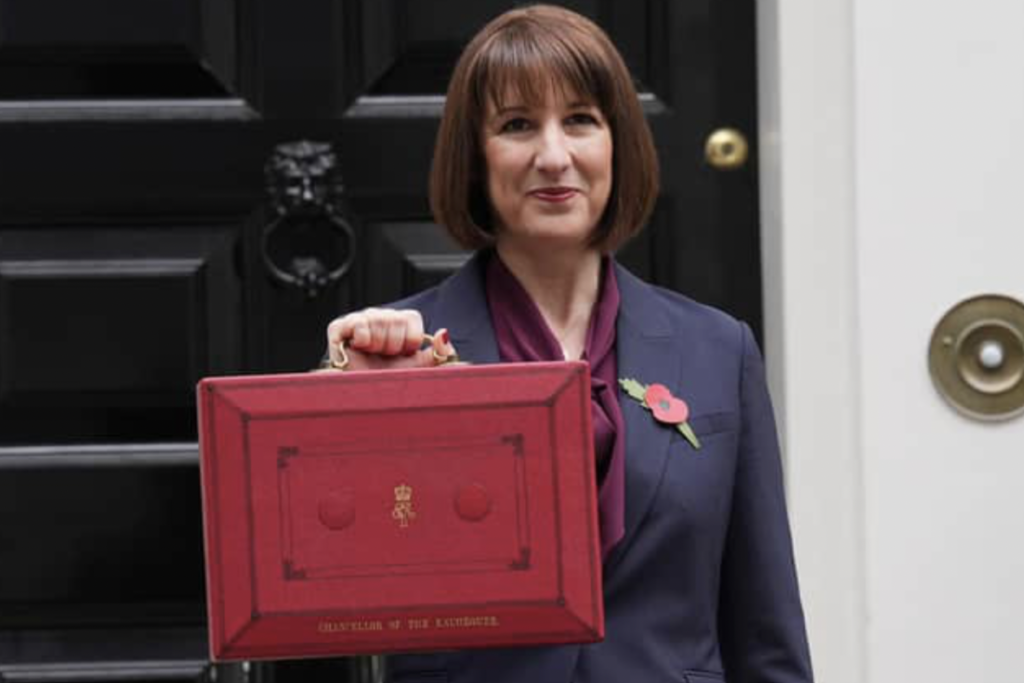Pensions are expected to be a key focus of Rachel Reeves’s first Mansion House Speech, due to be delivered this Thursday.
Many in the industry are expecting the new Chancellor to set out bold pension reforms, setting out how DC and DB funds will be used to boost investment into UK infrastructure and private business over the next five years.
This Mansion House speech is a key economic speech given by the Chancellor to senior City and banking representatives, outlining broad policy reforms for the forthcoming parliament.
In her recent Budget Reeves did not make major changes to pensions, apart from the move to include pension assets within the inheritance tax net.
But Broadstone’s Head of Policy, David Brooks says announcements and themes outlined in this week’s speech could be a turning point for the UK pensions industry.
“Following a Budget which aims to fix the foundations of the UK economy, the Chancellor is focusing on growth. Central to that are the next steps on pension reform, which will aim to unlock more private investment to fuel the Government’s growth mission.”
Brooks points out that in the Mansion House speech in July 2023, the then Chancellor Jeremy Hunt announced a Mansion House Compact, which asked signatories to allocate at least 5 per cent of the DC default funds to unlisted equities by 2030.
He adds: “The Government is also keen to drive increased investment in infrastructure. But with little progress made on this so far, could the Chancellor mandate pension schemes to change their capital allocation strategies?It is well-established that trustees must take account of financially material factors when setting up long-term investments or investment targets. However, trustees may also balance non-financial matters when making investment decisions, like member sentiment or wider social issues.”
But he added that it was hard to see how the Government can mandate an investment class without conflicting with the primary duty of financially material factors. If they were to implement this mandate, they would have to consider one of two methods. One options would be to create a product that entices enough of the governing bodies of pension schemes to see the investment as an offer too good to be true. He said this may be best achieved by tax breaks – but this seems unlikely this close to a budget. Another options is “first loss protection” – for example, joint investment with the Government who can take the hit if performance is poor.
He says that Reeves may also set out plans to introduce a Canadian-style overhaul of the Local Government Pension Schemes (LGPS). “With £360 billion in assets, the potential is enormous. Taking a page from Canadian pensions, which have led the way in infrastructure-focused investments, the Government may push LGPS towards a more aggressive, strategic approach to investment.”
Brooks adds that DC consolidation may also be mentioned. “Current frameworks, like ‘Value for Money’, encourage consolidation among smaller schemes, but there’s a chance we’ll see teeth added to these plans to speed up the process. That could potentially include allowing regulators like The Pensions Regulator and the Financial Conduct Authority to compel transfers of schemes that fail to meet value-for-money criteria. “
There was also speculation that the speech will also focus on the DB sector. Tom Froggett, senior consultant at XPS Group says: “While we expect the Mansion House speech to focus on DC and public sector DB schemes, we urge the chancellor not to overlook private sector DB schemes which hold around £1.4 trillion in assets.
“These schemes are well-funded but, without any incentives to run on, employers and trustees are viewing insurance buyouts as the default path once schemes close. We still see insurance buyout as the preferred strategy for many schemes, but giving employers and trustees more flexibility to take the right approach for their circumstances is important.
“We’re therefore calling on the Government to introduce changes to help private sector DB schemes to build and use surpluses where appropriate, which could unlock up to £100 billion in value over the next decade. With employers facing rising costs, especially after the recent increase to employer NI contributions, this flexibility will be essential to improve outcomes for both employers and members.”
Finally a number of commentators predict that Reeves will use this opportunity to outline more details about the phase two of the Pensions Review. It has already been announced that this will look at pension adequacy and outcomes.
Brooks says: “There are a number of big picture ideas including side-car savings and early access to pensions. Tax relief on contributions may come round again with a flat rate relief of 30 per cent being a boost to basic rate taxpayers.”
However he pointed out that following the significant National Insurance rise for employers, mandating higher pension contributions in the short-term appears unlikely.
